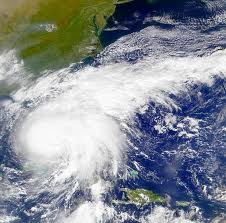 This weekend many east coast families are canceling or changing their final summer travel plans and figuring out how to explain the violent winds and rains of hurricanes to their young children.
This weekend many east coast families are canceling or changing their final summer travel plans and figuring out how to explain the violent winds and rains of hurricanes to their young children.
Hurricane Irene is something many kids have not yet experienced. The destructive, monster of a storm is raking the Eastern Seaboard .
Some kids remain oblivious to the storm, while others are obsessively watching weather updates or are intrigued by the science behind it. Once the wind and water damage hit, many kids may experience serious anxiety, possibly amplified by the overwhelming media coverage on TV and on the Internet.
Many parents don’t know what to tell their children, and some aren’t too worried about it. Yet experts are offering their tips for families wondering how to handle natural disasters with their kids.
"To the extent that parents can convey a relatively calm and in-charge persona to children, the better they're going to do," Rahil Briggs, a clinical psychologist at Montefiore Medical Center, told ABC News.
Alan Kazdin, a professor of psychology and director of Yale University's Parenting Center and Child Conduct Clinic told ABC News that parents should answer kids' questions about the hurricane directly and without embellishing.
"That's true with questions about sex, and it's true with questions about hurricanes," he said. "I wouldn't hide anything, but I wouldn't elaborate either."
Dr. Dr. Betty Ann Lowe writing for The Sun-Times has more advice for parents whose kids are nervous about bad weather.
“The most important thing parents can do is to evaluate how they deal with stormy weather themselves,” she says.
She advises parents to prepare an area of their home with a battery-operated radio and lamps and to think about how they are reacting to the storms.
“As a rule, children will do quite well if they can see their parents as knowledgeable, protective individuals who plan for emergencies and can reasonably cope with circumstances that occur,” she says.
In an article by CBS New York, Dr. Irwin Redlener of the Public Health National Center for Disaster Preparedness at Columbia University, also gives advice for parents.
“Holding them, making sure you’re physically close, answering questions that they have and trying to remain calm are the most important things to do,” she says.
“Reassure children that there is going to be a big event, but we’re going to keep ourselves … as safe as we possibly can, and that’s why Mom and Dad are doing the various things we have to do to get ready.”
The Scholastic blog recommends several books for parents to help their children remain calm and understand what is happening. The Scholastic Kids Press Corps will also be publishing stories from kid reporters living in South Carolina, Atlanta and Virginia.
The Sesame Street website has a hurricane kit to help parents talk to their kids with tips, activities and videos.